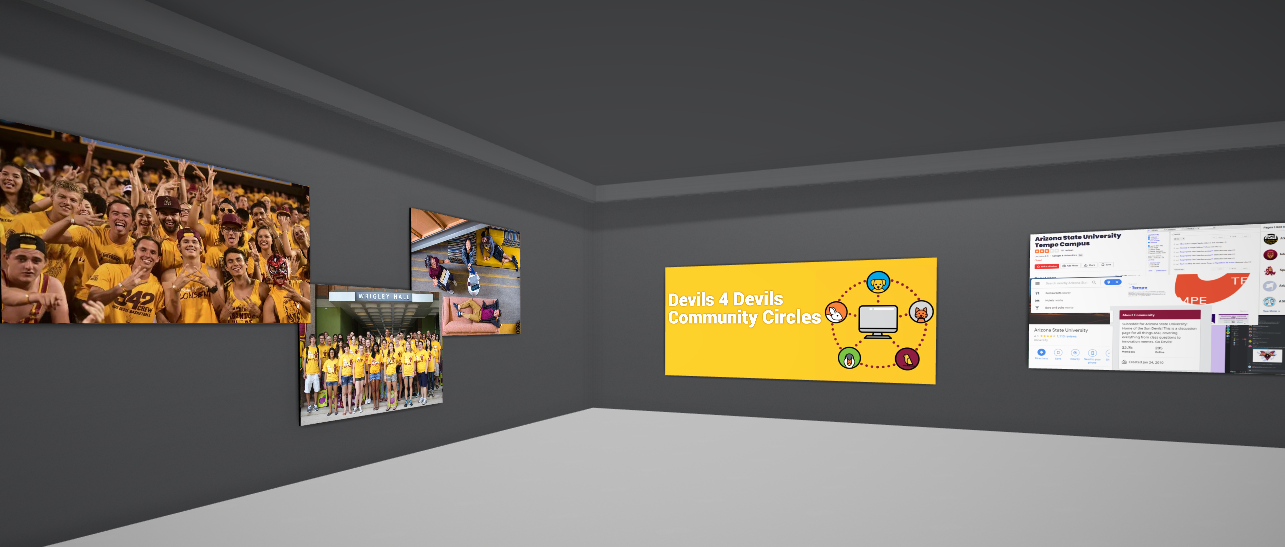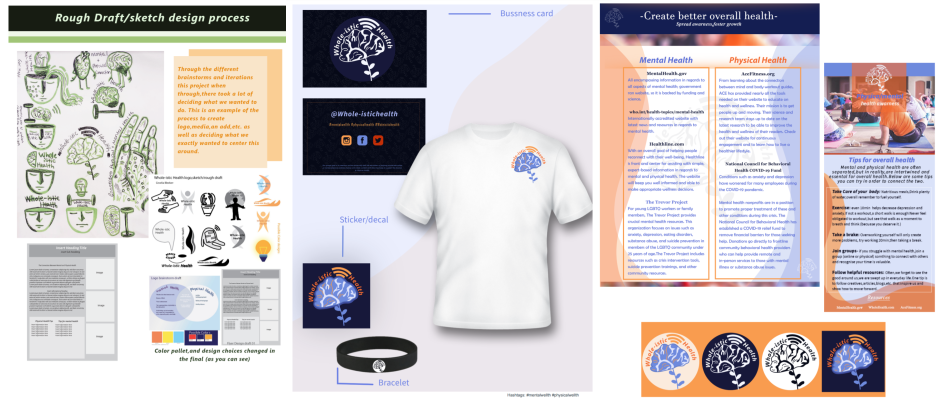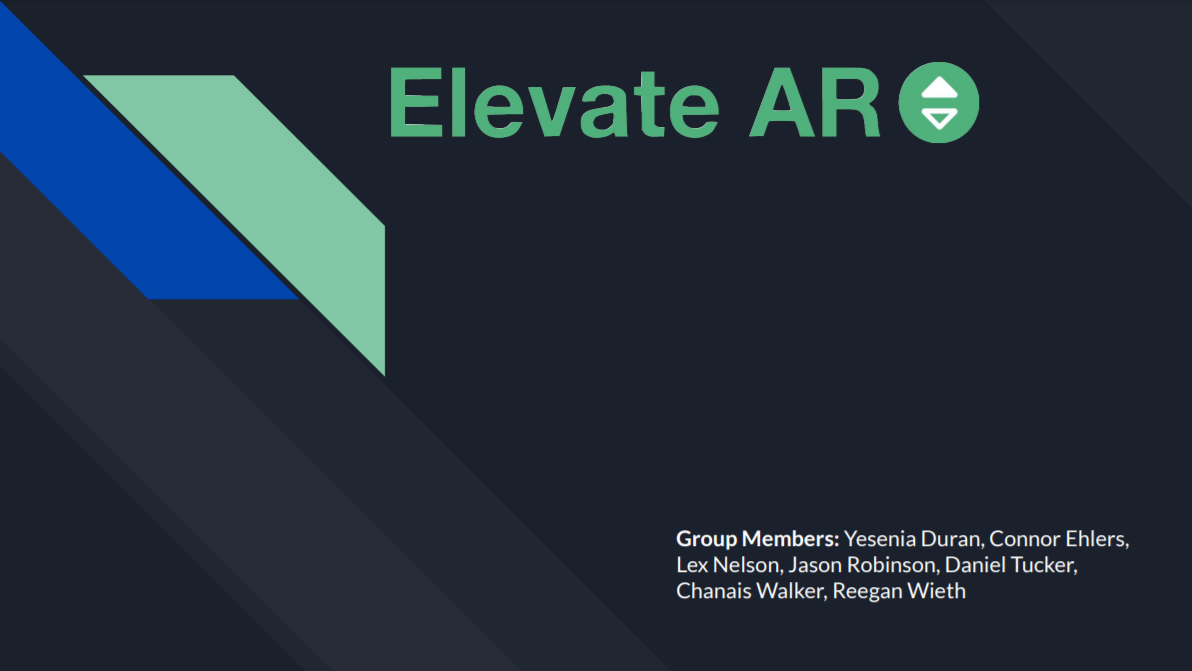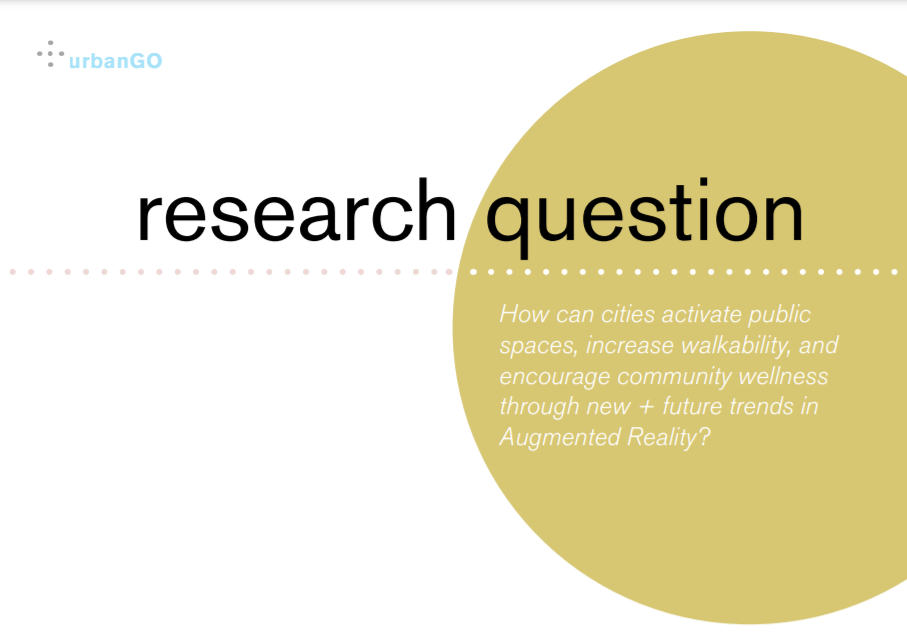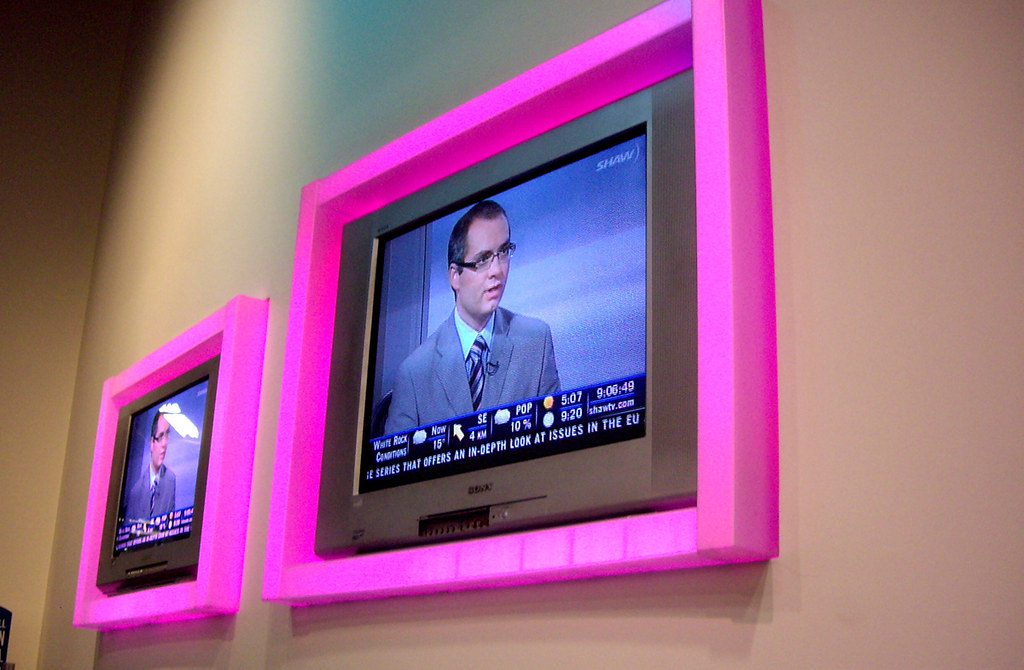
Humanizing Digital Culture Impact Outcomes
Humanizing Digital Culture
Students in the Humanizing Digital Culture Lab, after having discussed the potential for digital experiences—extended reality, net-native art exhibitions, online experiences, and more—to effect change in the physical world, worked with Leonardo to conceptualize software products and virtual experiences that aim to humanize digital culture. The online Lab split into several teams that each proposed their own humanized digital experience. See examples of their proposals below.
Common Point
Using the online virtual reality exhibition platform ArtSteps, one group of students created a self-guided presentation, called Common Point, to answer the question of how digital spaces can support inclusivity through mentorship, especially for first-year undergraduates at ASU. Viewers can walk through Common Point to read about different strategies to extend the inclusivity of physical spaces to the digital world. Experience the online exhibition here.
Data Merge Virtual Reality Glasses
With the help of Google's search engine and Google Glasses, another group conceptualized a product that students can wear as glasses which serves as a portable but immersive search engine. Instead of simply seeing answers to search queries in text, these glasses put the learner into a virtual learning environment that will guide them to the answer through a personal, tailored experience using machine learning and artificial intelligence technologies. Believing that this alternative learning tool could give learners better opportunities to retain information and think critically, the team created a product design proposal and prototype that can be viewed here.
Health and Wellness During COVID-19
Searching for a self-guided digital form of respite from the emotional and physical stress of the COVID-19 pandemic, one team of students conducted a study to determine whether listening to COVID-inspired songs and encouraging artistic expression improves mental health. The team created a website to invite people to participate in their study and published their results in an informal paper.
Beyond the Lab
In the Spring 2022 semester, the Elevate AR team will be extending their impact outcome into a Beyond the Lab project. Read more about their upcoming work here.
Note: The views presented or expressed on this page are those of the speaker or author only and do not necessarily represent the views of Arizona State University.
